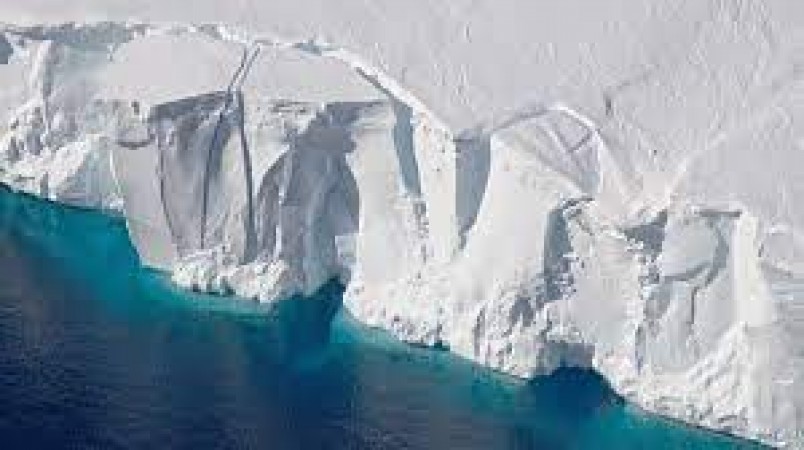
Antarctica, the southernmost continent on Earth, is a place of extreme conditions, harsh weather, and pristine beauty. Known as the coldest, windiest, and driest continent, Antarctica poses unique challenges for those who venture into its frozen expanse. One intriguing aspect of life in Antarctica is timekeeping – a fundamental necessity that can be surprisingly complex in this remote and isolated region.
Understanding Antarctica's Time Zones
In Antarctica, a single time zone is applied across the entire continent: Coordinated Universal Time (UTC). This timekeeping system allows for consistency in research, communication, and data analysis. Despite its vast size, Antarctica's time zone remains uniform, simplifying operations in a region where every minute counts. The continent's proximity to the South Pole also leads to peculiarities in its daylight and darkness patterns. During the austral summer, Antarctica experiences constant daylight, while the austral winter brings extended periods of darkness. These extreme light variations can influence human perception and pose unique challenges for maintaining regular schedules.
Challenges in Timekeeping
Unlike other continents with permanent residents and established time systems, Antarctica's population mainly consists of researchers and expedition crews who stay for limited periods. This transient nature makes it challenging to establish fixed time zones based on residential locations. Furthermore, the isolated and harsh environment of Antarctica presents practical difficulties for maintaining accurate timekeeping. The extreme cold can affect traditional timekeeping devices, and power sources might be scarce in remote locations.
Timekeeping Practices for Researchers and Expedition Crews
To ensure smooth coordination and data consistency, researchers and expedition crews in Antarctica rely on the UTC time standard. This unified timekeeping approach allows scientists from different countries to work together seamlessly. Specialized timekeeping devices, designed to withstand extreme conditions, are utilized to guarantee accurate readings.
Timekeeping in Antarctic Expeditions
During expeditions, maintaining accurate time is vital for navigation and coordination. Crossing longitudinal lines can lead to sudden changes in time zones, and expedition members must adapt accordingly to synchronize their activities effectively.
Living in Different Time Zones
Researchers in Antarctica come from various countries, each with its own time zone. Living and working together can be challenging due to the differences in local times. Effective communication and coordination become critical to overcome these obstacles.
Impact of Seasons on Time Perception
Antarctica's extreme seasons, with constant daylight and prolonged darkness, can have profound effects on human perception of time. Dealing with these psychological challenges is crucial for the well-being of individuals working in this unique environment.
Timekeeping for Wildlife and Flora
Timekeeping is not only essential for humans in Antarctica but also for wildlife and flora. Studying biological rhythms and adaptation strategies helps researchers understand how nature navigates time in such extreme conditions.
Scientific Applications of Accurate Timekeeping
Accurate timekeeping plays a crucial role in climate research and data analysis. Scientists rely on precise time measurements to track climate changes, understand geological processes, and study historical evidence stored in ice cores.
Timekeeping Technology Advancements
Advancements in technology have led to more sophisticated solutions for maintaining precise time in remote locations like Antarctica. Modern timekeeping devices can synchronize with satellites to ensure accurate readings despite the challenging conditions.
The Role of International Agreements
International agreements, such as the Antarctic Treaty, play a vital role in establishing timekeeping regulations and ensuring cooperation among nations conducting research in Antarctica. Standardization is essential for smooth operations and scientific collaboration.
Timekeeping in Extreme Weather Conditions
Antarctica's extreme weather conditions, including storms and severe cold, can impact the accuracy of timekeeping equipment. Scientists and expedition crews must take precautions to protect their devices and maintain their precision.
The Connection Between Time and Climate Change
Time data is a crucial component of climate change research. Studying temporal patterns helps scientists predict climate trends and understand the implications of global warming on the Antarctic environment.
Cultural Aspects of Timekeeping in Antarctica
Despite the challenging conditions, researchers and expedition crews find ways to celebrate special events and holidays in Antarctica. Different cultures adapt their rituals to the unique Antarctic setting, fostering camaraderie and a sense of community. Timekeeping in Antarctica is not merely about tracking hours and minutes but a critical aspect of ensuring efficient research and survival in extreme conditions. The implementation of UTC as a standardized time zone enables global collaboration and seamless coordination among researchers. As technology continues to advance, so does the precision and reliability of timekeeping in this frozen continent.
Experience the Speed: Enabling 5G on Your Jio Network Made Easy
Artificial Intelligence and Machine Learning: Unveiling the Future of Technology
Samsung vs Apple Watch: An In-Depth Comparison of Two Tech Titans